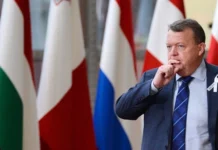Good Morning ,
Peace as Reset: How the Budapest Summit Could Reshape Global Finance
Trump and Putin’s planned meeting in Budapest revives hopes for peace — and may quietly signal a shift toward a long-awaited financial realignment.
The Breakthrough Nobody Expected
A sudden flurry of diplomatic activity has redefined the geopolitical map.
Former U.S. President Donald Trump and Russian President Vladimir Putin have agreed to meet in Budapest, aiming to negotiate an end to the war in Ukraine — a conflict now entering its fourth year.
The announcement follows a surprise phone call between the two leaders, described by Kremlin officials as “frank and substantive.” The call reportedly came just as Washington was considering a new round of advanced weapons for Ukraine, including Tomahawk missiles, a move that could have deepened confrontation rather than cooled it.
Shortly after the conversation, Putin convened Russia’s Security Council to review next steps. Within hours, signals emerged from Moscow indicating a willingness to resume structured talks with Western interlocutors — including a potential return to EU soil, something unseen since the invasion began in 2022.
Hungary, a NATO member and European Union state that maintains working relations with both Washington and Moscow, has offered to host. Officials confirmed that Budapest will guarantee Putin’s entry despite legal hurdles, framing it as a step toward “peace through dialogue.”
The Political Context
The developments follow weeks of quiet back-channel communication between U.S. and Russian advisers. Trump, who has made ending the Ukraine conflict a central theme of his 2024 campaign, called the war “inglorious” and “unnecessary.” His framing suggests that a negotiated ceasefire, rather than a battlefield victory, may be the preferred outcome if he returns to office.
For Europe, Putin’s re-entry into diplomatic settings could signal an attempt to restore limited engagement with the EU — an essential step for any eventual settlement.
For Ukraine, however, the message is complex: peace may come with conditions that freeze existing front lines rather than restore full territorial sovereignty.
From Ceasefire to Reset: The Economics of Peace
A credible peace process would not only reshape Eastern Europe’s security landscape — it could also serve as the economic trigger for a broader global financial reset.
1. Confidence Restoration in Fragile Markets
War has fractured supply chains, diverted capital to defense, and inflated energy prices. A truce would immediately reduce geopolitical risk premiums, unlocking investment flows across Europe, the Middle East, and Asia.
2. Repricing Sovereign Debt
Countries neighboring the conflict, from Poland to Turkey, have endured elevated borrowing costs. Peace would lead credit agencies to revise risk outlooks downward, lowering yields and freeing fiscal space for reconstruction and development.
3. Rebalancing of Global Reserves
With de-escalation, central banks could reassess heavy defensive positions in U.S. dollars and U.K. gilts, shifting liquidity toward infrastructure and energy investment — a long-term reallocation away from “war capital” to “rebuild capital.”
4. Revival of Trade Corridors
Reconstruction in Ukraine would stimulate European manufacturing and logistics, while opening new corridors linking the Black Sea, the Balkans, and Central Asia — critical routes for commodities and renewables.
5. The Human and Market Psychology Effect
Peace reintroduces optimism. Investors begin to price for cooperation rather than destruction. Historically, postwar recoveries — from Europe in 1948 to the Balkans in the 1990s — have delivered exponential returns once stability is credible.
The Architecture of a Financial Reset
For a true global reset to emerge from this diplomatic opening, the following preconditions would have to align:
- Transparent Mediation: Neutral guarantors (possibly UN or BRICS intermediaries) to ensure compliance and build credibility.
- Debt Relief Mechanisms: Coordinated restructuring for Ukraine and related economies to prevent insolvency during reconstruction.
- Reconstruction Bonds: A multilateral fund could issue “Peace Bonds” backed by international guarantees — an instrument attracting both state and private investors.
- Monetary Stabilization: Central banks may coordinate liquidity facilities to cushion postwar volatility and avoid inflation shocks.
- Energy and Commodity Frameworks: Russia’s re-entry into regulated European markets under new conditions could stabilize energy pricing — reducing systemic inflation risk worldwide.
Risks and Skepticism
Critics warn that neither side may be negotiating in full good faith. Hardliners in both Kyiv and Moscow view compromise as surrender, while Washington’s establishment remains divided on the optics of Trump engaging Putin.
Economic expectations may also outpace political reality: reconstruction funding requires sustained security guarantees and governance reforms. A rushed or symbolic summit could raise hopes that later collapse — producing renewed instability rather than relief.
The Broader Implication
If diplomacy in Budapest leads to verifiable de-escalation, it could be more than just the end of one war. It would mark the first major post-unipolar negotiation between U.S. and Russian leadership since the Cold War — and the first real test of whether peace itself can serve as a foundation for financial redesign.
In this scenario, markets would not simply “recover.” They would restructure — shifting away from debt-driven defense cycles toward real asset investment and new monetary alignments.
The global economy could enter a phase where financial security depends less on sanctions and more on sustainable cooperation.
Outlook
The Budapest Summit — if realized — could become the diplomatic inflection point that transforms not only Eastern Europe’s map but the logic of global finance. Peace may yet prove to be the ultimate stimulus.
This is not just politics — it’s global finance restructuring before our eyes.
Seeds of Wisdom Team
Newshounds News™ Exclusive
Sources
- Newsweek — “Trump, Putin to Meet in Budapest Over Ukraine War Talks”
- Newsweek — “Trump’s Surprise Call with Putin Throws Ukraine Aid Into Question”
- Newsweek — “Putin Acts After Trump Call, Set to Return to EU”
- Reuters — “Hungary to Ensure Putin Can Enter Country for Summit”
~~~~~~~~~
Privacy vs. Prudence: The FSB’s Warning on Crypto Data Gaps — and the Quiet March Toward a Financial Reset
Global regulators eye new coordination as privacy laws and fragmented data threaten oversight of the crypto economy.
Key Developments
The Financial Stability Board (FSB) — the G20’s global risk watchdog housed at the Bank for International Settlements (BIS) — has sounded a fresh alarm:
privacy laws and inconsistent regulations are blocking effective cross-border oversight of crypto markets.
In its latest 107-page peer review report, the FSB highlights how fragmented supervision and secrecy rules are undermining global cooperation — creating blind spots that could amplify systemic risk in the next financial downturn.
The Findings
- Persistent Gaps: Sixteen years after Bitcoin’s debut, most countries still lack consistent rules for crypto assets and stablecoins.
- Data Inconsistencies: Regulators rely on incomplete or commercial datasets that fail to capture full market risk.
- Privacy Barriers: Strict data protection laws prevent regulators from sharing critical transaction or counterparty data across borders.
- Cooperation Breakdown: Some firms and authorities refuse to exchange data, citing legal uncertainty or lack of reciprocity.
- Systemic Risk Potential: The FSB warns these weaknesses invite regulatory arbitrage, leaving the global financial system exposed.
The Privacy Dilemma
While data privacy remains a fundamental right, regulators argue it has become a double-edged sword:
- Privacy laws can shield legitimate data, but they also protect risky or opaque behavior.
- Without reciprocal information-sharing agreements, financial supervisors are effectively blind to cross-border contagion.
- The absence of shared data slows global risk detection — particularly for large stablecoin networks.
The FSB urges governments to craft selective disclosure frameworks — systems that allow targeted sharing of verified data while preserving confidentiality.
Why This Matters: The Path Toward a Financial Reset
Addressing these challenges could quietly restructure global finance over the next decade.
A few emerging trends hint at a gradual but deliberate financial reset:
- Unified Regulatory Standards: Common data-sharing and reporting rules could eliminate arbitrage and standardize compliance across markets.
- Digital Payment Corridors: Secure, regulated stablecoins may underpin cross-border payment systems that bypass legacy banking rails.
- Capital Realignment: Reliable global supervision could attract institutional investment into blockchain-based infrastructure and tokenized debt markets.
- Reserve Diversification: Nations could begin using multi-currency and multi-asset settlement models, reducing dollar dependency.
- Post-Crisis Coordination: These tools could facilitate reconstruction and global liquidity management after future market shocks.
If implemented, these measures would not be a sudden overhaul — but a stepwise realignment of the world’s financial architecture.
Challenges Ahead
- Legal Resistance: Privacy advocates and data regulators may view cross-border disclosure as intrusive.
- Technical Readiness: Secure, interoperable data-sharing frameworks remain in early stages.
- Political Fragmentation: Divergent national priorities could delay coordinated reform.
Despite the risks, the direction is clear: international regulators are preparing the foundation for a post-crisis monetary framework — one that merges digital finance with enhanced transparency.
Analysis:
The FSB’s review underscores how privacy and fragmentation are not only regulatory problems — they are structural weak points in the global system.
Solving them could lead to deeper data integration, tokenized liquidity networks, and new frameworks for global reconstruction finance.
This is not just politics — it’s global finance restructuring before our eyes.
Seeds of Wisdom Team
Newshounds News™ Exclusive
Sources & further reading
- Financial Stability Board — Thematic Peer Review on FSB Global Regulatory Framework for Crypto-asset Activities (107-page report). (FSB PDF). Financial Stability Board
https://www.fsb.org/uploads/P161025-1.pdf - Reuters — G20 risk watchdog warns of ‘significant gaps’ in global crypto rules. (reporting on FSB peer review). Reuters
https://www.reuters.com/sustainability/boards-policy-regulation/g20-risk-watchdog-warns-significant-gaps-global-crypto-rules-2025-10-16/ - Financial Times — Gaps in crypto rules can be exploited, warns Financial Stability Board. Financial Times
https://www.ft.com/content/86593f5c-b524-4050-951b-d19ddcfb6158 - Cointelegraph — Privacy laws hinder cross-border crypto regulation: Financial Stability Board. Cointelegraph
https://cointelegraph.com/news/privacy-hinder-crypto-regulation-financial-stability-board - Reuters / FATF coverage — Global financial crime watchdog calls for action on crypto risks (FATF). Reuters
https://www.reuters.com/sustainability/boards-policy-regulation/global-financial-crime-watchdog-calls-action-crypto-risks-2025-06-26/ - Reuters — G20 cross-border payments push set to miss 2027 target (context on payments and cross-border workstreams). Reuters
https://www.reuters.com/business/retail-consumer/g20s-cross-border-payments-push-set-miss-2027-target-2025-10-09/
Seeds of Wisdom Team RV Currency Facts Youtube and Rumble
Newshound’s News Telegram Room Link
Follow the Gold/Silver Rate COMEX
Follow Fast Facts
Seeds of Wisdom Team™ Website





